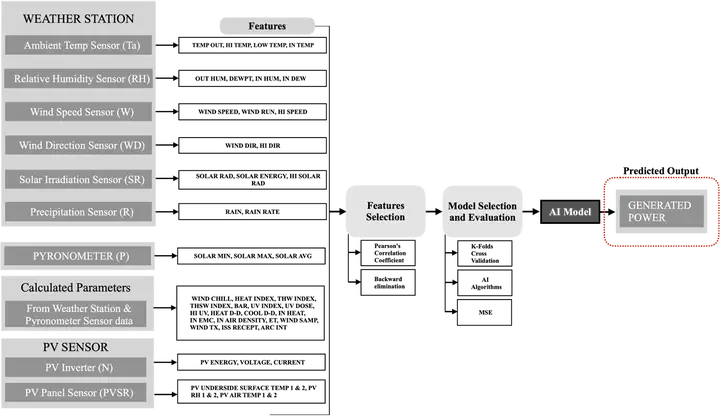Small-Scale Solar Photovoltaic Power Prediction for Residential Load in Saudi Arabia Using Machine Learning

Abstract
Photovoltaic (PV) systems have become one of the most promising alternative energy sources, as they transform the sun’s energy into electricity. This can frequently be achieved without causing any potential harm to the environment. Although their usage in residential places and building sectors has notably increased, PV systems are regarded as unpredictable, changeable, and irregular power sources. This is because, in line with the system’s geographic region, the power output depends to a certain extent on the atmospheric environment, which can vary drastically. Therefore, artificial intelligence (AI)-based approaches are extensively employed to examine the effects of climate change on solar power. Then, the most optimal AI algorithm is used to predict the generated power. In this study, we used machine learning (ML)-based algorithms to predict the generated power of a PV system for residential buildings. Using a PV system, Pyranometers, and weather station data amassed from a station at King Khalid University, Abha (Saudi Arabia) with a residential setting, we conducted several experiments to evaluate the predictability of various well-known ML algorithms from the generated power. A backward feature-elimination technique was applied to find the most relevant set of features. Among all the ML prediction models used in the work, the deep-learning-based model provided the minimum errors with the minimum set of features (approximately seven features). When the feature set is greater than ten features, the polynomial regression model shows the best prediction, with minimal errors. Comparing all the prediction models, the highest errors were associated with the linear regression model. In general, it was observed that with a small number of features, the prediction models could minimize the generated power prediction’s mean squared error value to approximately 0.15.